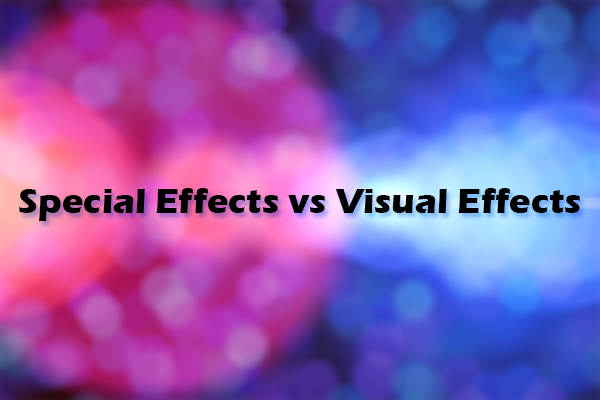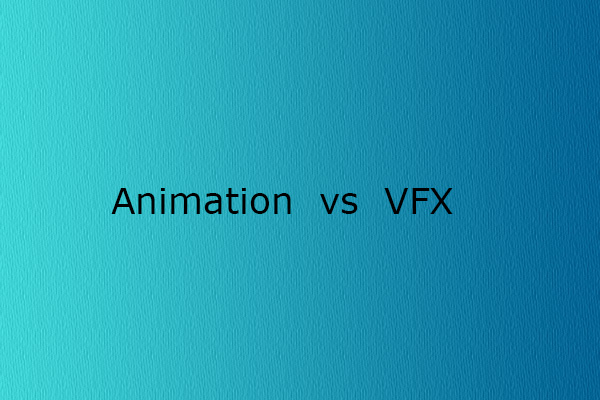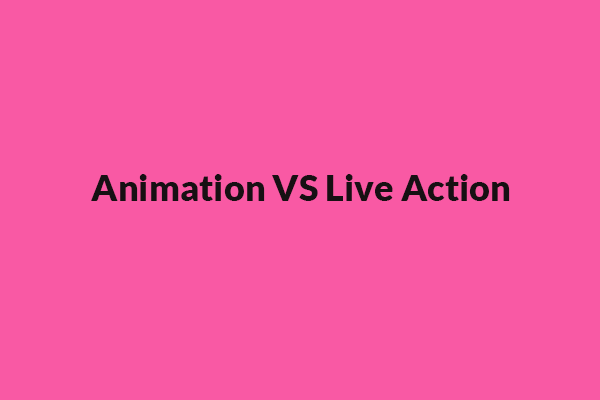In this post by MiniTool MovieMaker (one of the best video editing software), I will explore the realm of CGI vs VFX or computer-generated imagery vs visual effects, including definitions, applications, techniques and processes, among others.
CGI vs VFX: Descriptions
About VFX
VFX, which stands for visual effects, is the process of combining genuine footage with manipulated imagery to generate environments that appear realistic yet would be costly, dangerous, impractical, or impossible to catch on film.
VFX is more than simply CGI; it also includes combining live-action footage with practical effects (SFX) as well as digital enhancements.
Films like Gravity, with the hauntingly beautiful but horrifying space vistas, and Inception, with the folding cities, demonstrate the power of visual effects.
About CGI
CGI refers to the process of generating lifelike or stylized images using computer software. CGI can produce whole landscapes, animate figures that do not exist in reality, and even age actors or transport them back in time.
The creation of CGI entails 3D modeling, rigging, texturing, and animation (a series of techniques requiring both artistic vision and technical skill).
A simple approach to comprehend the distinction is to consider it as a subset relationship; VFX is a parent category that covers CGI and SFX. While VFX embraces any visual manipulation, CGI is specifically concerned with computer-generated imagery.
CGI vs VFX: Distinctions
Appreciating the complexities of filmmaking requires an awareness of the distinctions between VFX vs CGI, even though both are essential to producing amazing cinematic experiences.
Application in the Movie Industry
CGI largely entails the production of digital elements and is employed to visualize scenarios and characters that would be difficult or impossible to create physically.
On the contrary, VFX covers a wider variety of techniques, like CGI, to incorporate these digital creations into live-action shots, improving or altering the reality of the scenarios.
Utilized Software and Tools
CGI artists utilize software like Blender, ZBrush, and Autodesk Maya for 3D modeling, rendering, and animation. More complex and realistic digital productions are now possible thanks to developments in CGI technology.
VFX artists utilize specialized VFX software and tools such as 3D modeling software (like Maya), compositing software (like Nuke), as well as motion tracking software (like PFTrack) to produce their visual effects. Technological improvements in VFX have been critical in creating more lifelike and captivating effects.
MiniTool MovieMakerClick to Download100%Clean & Safe
Effects on Storytelling
CGI enables filmmakers to turn fantasy into reality, providing endless storytelling opportunities. It allows the creation of characters and components by visual storytellers that are not found in real life.
VFX ensures that these components coexist convincingly with the live-action elements, thereby sustaining the suspension of disbelief required for the audience’s immersion.
Working Together and Overlapping
CGI and VFX usually collaborate, with VFX employing CGI assets and techniques to improve live-action footage. Because they work together and have similar objectives of producing appealing visual experiences, the terms CGI and VFX can be used interchangeably.
Creation and Realism
CGI enables the production of wholly fictional elements and worlds, stretching the limits of visual narrative. On the other hand, VFX seeks to improve reality and make the impossible appear reasonable in live-action shots.
Techniques and Processes
CGI production relies greatly on digital artistry. Modeling, texturing, and animation are some of the stages in the process.
VFX includes extra stages, like matte painting, which blends digital or painted backdrops with live-action shots, and compositing, which combines digital and live elements.
Comprehending these distinctions emphasizes the joint endeavor between technicians and artists in expanding the realm of cinematic possibilities.
Final Words
You already know some of the distinctions between CGI vs VFX after reading this post. This is critical for recognizing the enormous artistry and technical skills behind generating breathtaking visual experiences.
Topics you may also find interesting:





User Comments :